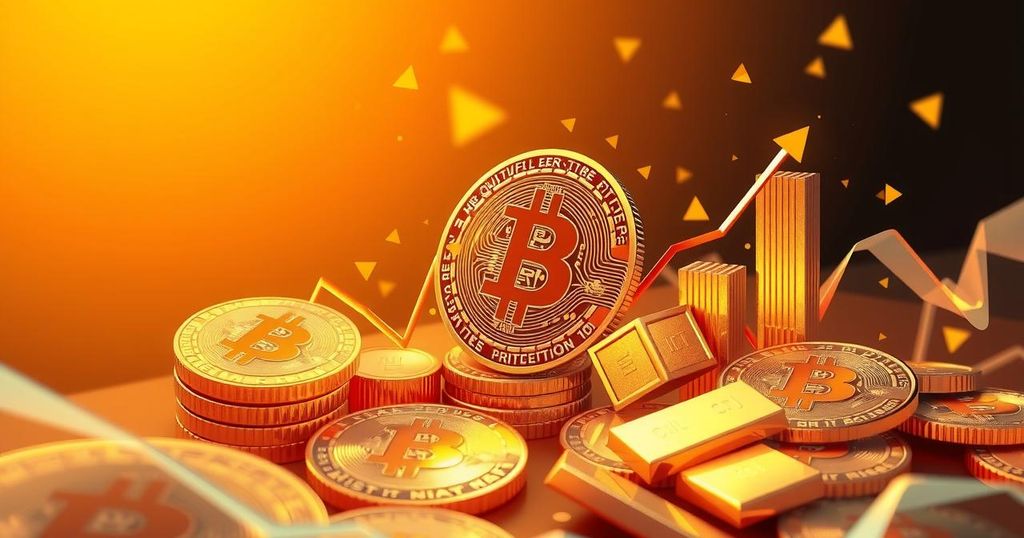Bitcoin Surges as Trump and Powell Clash Over Monetary Policy
Bitcoin’s price surge over $87,500 amid Trump-Powell tensions signals bullish sentiment in crypto, coinciding with a weaker US dollar. The clash highlights concerns over the Fed’s independence and the implications for US monetary policy, as Trump’s criticism of Powell adds to the economic volatility.
The cryptocurrency market is experiencing a positive shift, partly attributed to the ongoing tensions involving US Federal Reserve Chairman Jerome Powell. This conflict intensified after US President Donald Trump hinted that Powell might be removed from his position, causing Bitcoin to surge above $87,500. Data from Coingecko reveals that Bitcoin increased by over 3% within just 24 hours, breaking a week-long period of stagnation, while other cryptocurrencies like Ethereum and XRP also saw modest gains.
The recent bullish trend in Bitcoin correlates with a decline in the US dollar, as the confrontation between Trump and Powell has raised concerns regarding the Federal Reserve’s independence. The dollar index dropped to 98.29, marking its lowest point in over three years, and reflecting a 7.6% year-to-date decline against other major currencies. This depreciation is concerning for investors, who are cautious about potential political influences on monetary policy.
Trump has openly critiqued Powell’s management of interest rates, labelling him as “too late and wrong” in his policy decisions. The President has not shied away from suggesting that Powell should be removed for not aggressively cutting interest rates to help stimulate growth. In contrast, Powell has reiterated the Federal Reserve’s independence, asserting decisions are based purely on economic data and not subject to political pressures.
The clash emphasizes the complexities surrounding the President’s legal authority to dismiss the Fed Chair. Although the Federal Reserve Act stipulates that the Chair can be removed “for cause,” this is generally understood to mean serious misconduct rather than policy conflicts. This dispute underlines a critical juncture in US monetary policy and its potential impacts on financial markets.




Post Comment